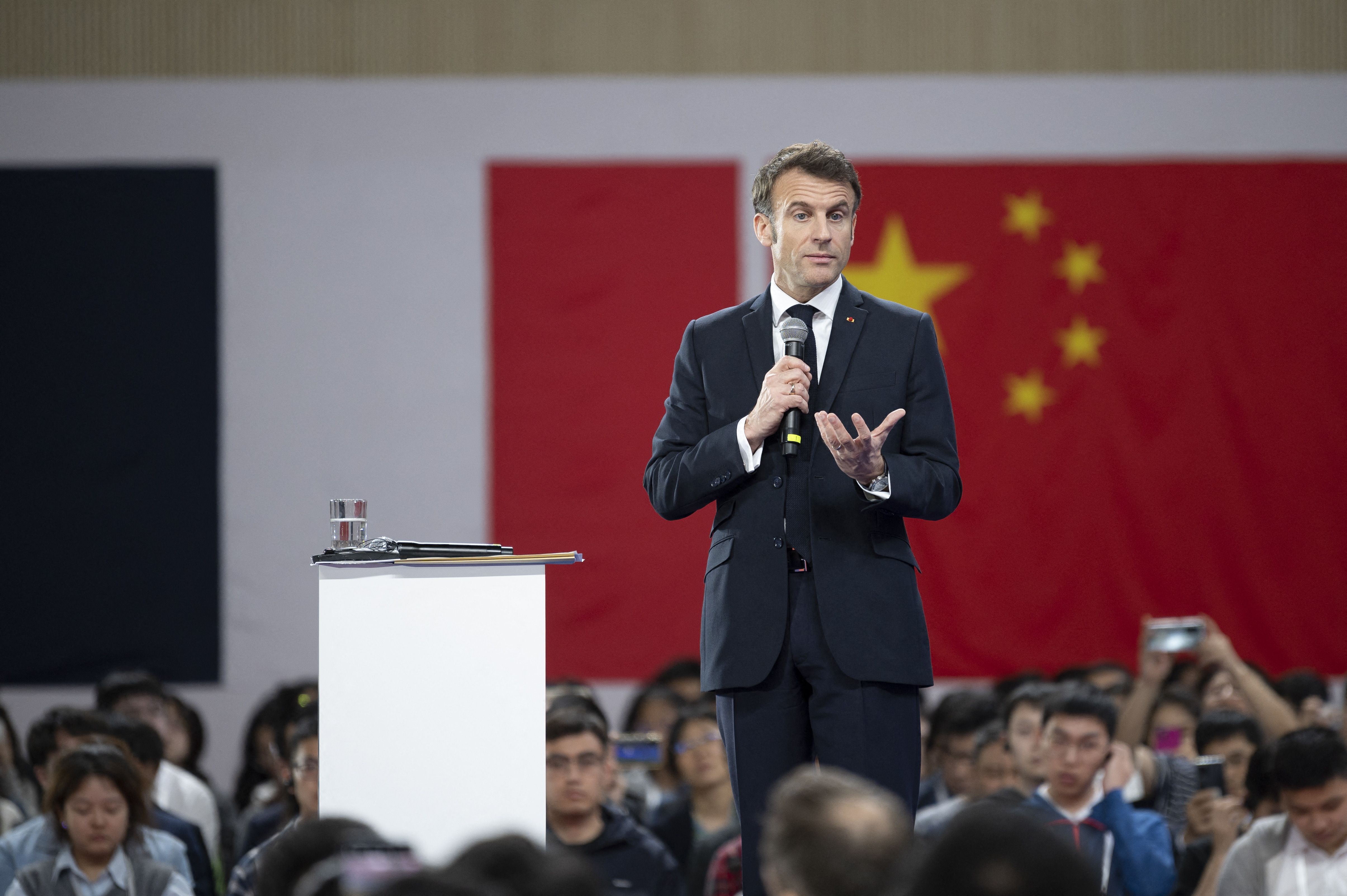International politics
Macron’s Major Mistakes

French President Emmanuel Macron in China
© picture alliance / abaca | Blondet Eliot/ABACAPolitical observers wonder how this could happen. Emmanuel Macron, an experienced President of a highly respected democratic country, travels to China and declares that (1) it is not Europe’s business to get caught up in crises that are not ours, and that (2) strategic autonomy requires that Europe should not be a follower of America in case of a Taiwan crisis.
Taiwan: Not Our Business?
Both messages – not, of course, the trip to China as such – were completely wrong-headed. The first one, made by a French President, sounds like nineteenth century diplomacy. In this worldview, it is only vital interests that count, not universal human values. This is obviously not the way a foreign policy in the 21st century should work – otherwise we would not have to worry about Afghanistan and Iran with their cruel violation of women’s rights. Beyond, one is tempted to ask: what exactly are the regions that count in Macron’s French interest priorities? Only Western Africa and the Arab world where his country has exerted a massive control and influence over long periods of history and where partly French is spoken? How about sub-Saharan Africa and Latin America – too far away? And how about Eastern Europe? Is Ukraine really important enough to be on the French map of interests? In fact, we remember that Emmanuel Macron not long ago phoned several times with Putin over options for peace when the Russian autocrat had started a war of aggression without showing any signs of respect for Ukrainian freedom. Clearly, the European Union cannot possibly use these criteria of “business closeness” if it wants to retain its credibility as a continent of values, which partly go back to the French (!) Revolution. Of course, interests do matter, but so do universal values that liberally minded European statesmen and stateswomen should duly represent in the world. In this respect, nothing separates us from the United States, but a lot from iron-fisted autocracies with totalitarian leanings like Russia and China.
And then Taiwan: if it was really attacked by China, this would be a “cardinal breach” of international law, completely independent of the almost universally respected One-China-Doctrine. Legal experts perfectly agree: only a peaceful unification like the German one in 1990 would be acceptable; it requires consensus in both parts to be united, and it excludes the use of military force. Of course, politically, it is an open question how Europe would react in case of a Chinese aggression against Taiwan, as it was an open question in February 2022 how it would react to the Russian assault on Ukraine. This is why it is best to avoid public speculation about this topic altogether – and to lower the temperature of the conflict as the Taiwanese skillfully do by trying to persuade heavy-handed Americans to avoid all too provocative gestures vis-à-vis China. Note also that, oddly enough, Macron made his “not our business”-comments just at the time when a French frigate crossed the Taiwan Strait. Not our business? After all, the French military presence in the region is quite strong by European standards.
Gaullism: Back On Stage?
The second of Macron’s message sounds like old-style Gaullism: don’t follow America, but define your own European power agenda. At face value, this sounds absolutely reasonable: Who would deny that Europe has its own foreign policy interests that are quite often different from those of the United States? And who would deny that American foreign policy follows the agenda of a big power that has its stakes everywhere in the world and - often enough - leaves moral guidelines aside? Clearly, we all remember the Iraq war and its disastrous consequences. So, clearly, more autonomous weight of Europe would be welcome, but that requires a strategy of limbering up military might and defining a genuinely European stance on world conflicts.
So far, so good. Beyond that, however, Macron’s transatlantic message is extremely ill-timed. After all, there is the Russian war in Ukraine; and there are massive tensions around Taiwan provoked by nobody else but China. Why on earth should we just now question the transatlantic relationship, which has been extremely helpful in staging a unified reaction to Russia’s aggression in all dimensions - politically, economically, militarily? Wasn’t the unity of the West remarkably robust, much more so than we expected beforehand? Why just now question this unity by focusing on ill-defined own interests, which are not yet backed by European military power that must follow the “Zeitenwende”?
For the time being, the priorities should be completely different. As long as the world can visibly be divided into liberal democracies on one side (note: in all shades of grey!) and powerful autocracies like Russia and China on the other, there is no point in driving wedges into the camp of those who represent “western” values that are truly universal. This is why the mistakes of Mister Macron weigh so heavily. They were met with protests in Taiwan and praise in China. And they made many observers in the world of liberalism ask serious questions about the credibility of European leaders.
